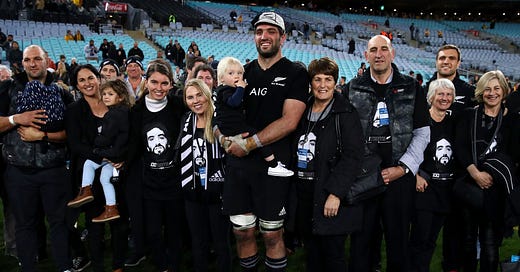'Everyone had moments of getting shitty, but it was nothing we didn’t get over'
Sam Whitelock book extract ($): The All Black legend's family and other early influences reflect on his career the environment that produced a champion.
The following is an extract from Samuel Whitelock’s autobiography. I chose this section because it is one of my favourite parts of the book. In the course of researching Sam’s life, we came to the realisation that we had all this great insight from those who loved and knew him be…
Keep reading with a 7-day free trial
Subscribe to The Bounce to keep reading this post and get 7 days of free access to the full post archives.




